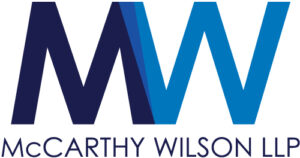From time to time we hear the story of the spouse who is leading a double life, perhaps stealing or engaging in other activity to fund a lavish life style unbeknownst to his or her spouse. A real life example of this was addressed by Maryland’s intermediate appellate court this week in the case of Bank of America Corporation v. Lynne Margaret Gibbons. It illustrates how the law may end up requiring even an innocent spouse to repay the ill gotten gains of her husband.
According to the Court’s opinion, Thomas Gibbons had taken proceeds from unauthorized sales of securities owned by customers of his employer, the Bank. He deposited these funds into an account under a company name, and from there into other accounts including a joint account with his wife, where the funds were commingled with his legitimate salary and other earnings. Mrs. Gibbons would write checks from this joint account for family household expenses.
After Mr. Gibbons was caught, the Bank filed suit against Mrs. Gibbons to try to recover some of the stolen funds. Mr. Gibbons provided an affidavit saying that the great majority of the stolen funds were spent by him on his personal entertainment, travel and other activities his wife did not know about. Mrs. Gibbons said that her husband kept complete control over the family accounts and records so that she had no idea his income was not legitimate, and likewise protested her innocence of any knowledge of her husband’s illegal activities or lavish spending on himself.
The lawsuit sought recovery of the funds on a legal theory of unjust enrichment. As the Court of Special Appeals explained, this theory holds that “a person who receives a benefit by reason of an infringement of another person’s interest, or of loss suffered by the other, owes restitution to him in the manner and amount necessary to prevent unjust enrichment.” The rule basically allows the judge to decide whether the plaintiff has proven that the defendant has the plaintiff’s money and it would be “unconscionable” for the defendant to keep it. The trial judge agreed with Mrs. Gibbons that as a matter of law, the Bank could not prove a claim of unjust enrichment, and the Bank appealed.
The appellate court disagreed with the trial judge and sent the case back for trial on its merits. It looked at the elements of a claim of unjust enrichment: 1) the plaintiff confers a benefit on the defendant, 2) the defendant knows or appreciates the benefit, and 3) the defendant retaining the benefit would be inequitable or unfair. It held that it made no difference that Mrs. Gibbons had not dealt directly with the Bank to obtain the money, rejecting the argument that she was no different than the car dealer who sold Mr. Gibbons a car or the casino where it gambled money away. As to her appreciation of the benefit, the Court said that at trial the good faith of Mrs. Gibbons is a factor for the judge to consider, but the Bank is not required to prove she knew of the thefts.
As to whether it is ultimately fair to require her to repay funds, the Court noted a number of other cases where an innocent recipient who benefited from someone else’s wrongdoing ultimately had to make restitution of funds she had received. Mrs. Gibbons can try to show a change of her circumstances that would make repayment unjust, or try to prove that the money deposited in the joint account was used solely by the husband. It will ultimately be up to the trial judge to weigh the evidence and decide whether and to what extent the funds must be repaid.
This case illustrates that even an innocent spouse runs the risk of having to pay for not following the money.
